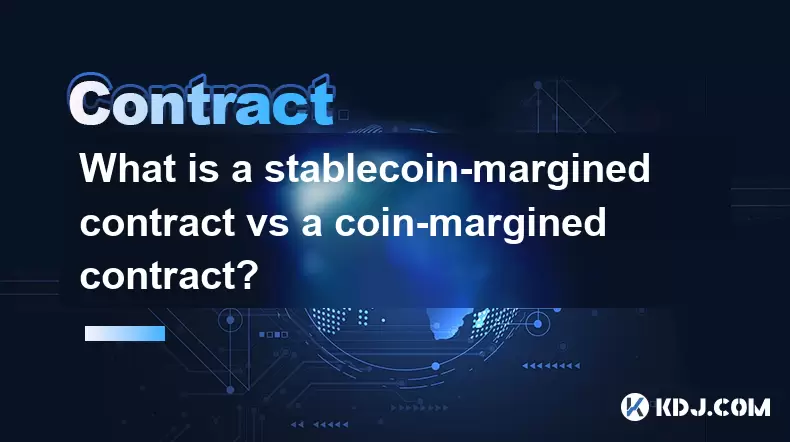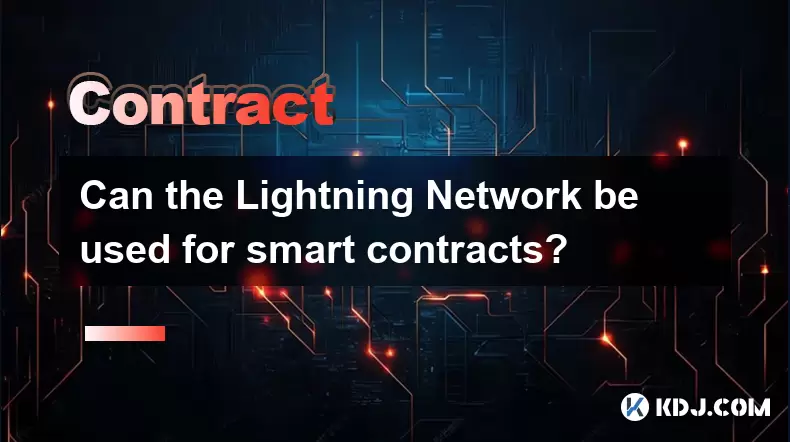-
 Bitcoin
Bitcoin $116,338.7874
-3.17% -
 Ethereum
Ethereum $3,017.0348
-0.35% -
 XRP
XRP $2.8779
-3.61% -
 Tether USDt
Tether USDt $0.9997
-0.01% -
 BNB
BNB $681.1328
-1.94% -
 Solana
Solana $159.4896
-3.25% -
 USDC
USDC $0.9998
-0.01% -
 Dogecoin
Dogecoin $0.1914
-4.87% -
 TRON
TRON $0.2981
-0.94% -
 Cardano
Cardano $0.7215
-2.32% -
 Hyperliquid
Hyperliquid $47.3384
-1.00% -
 Stellar
Stellar $0.4467
-2.96% -
 Sui
Sui $3.9201
0.68% -
 Chainlink
Chainlink $15.4254
-4.13% -
 Hedera
Hedera $0.2320
-3.81% -
 Bitcoin Cash
Bitcoin Cash $485.9139
-4.02% -
 Avalanche
Avalanche $21.0099
-2.86% -
 UNUS SED LEO
UNUS SED LEO $9.0031
0.00% -
 Shiba Inu
Shiba Inu $0.0...01309
-2.84% -
 Toncoin
Toncoin $2.9971
-0.82% -
 Litecoin
Litecoin $92.8919
-3.39% -
 Polkadot
Polkadot $3.9101
-3.17% -
 Monero
Monero $333.5849
-3.30% -
 Uniswap
Uniswap $9.0860
-2.64% -
 Dai
Dai $0.9999
0.01% -
 Ethena USDe
Ethena USDe $1.0004
0.01% -
 Bitget Token
Bitget Token $4.4728
1.07% -
 Pepe
Pepe $0.0...01223
-0.87% -
 Aave
Aave $319.8257
-0.39% -
 Bittensor
Bittensor $427.1075
3.79%
How do smart contracts work in supply chain management?
Smart contracts automate supply chain transactions, ensuring transparency and trust through blockchain technology.
Jul 12, 2025 at 04:56 pm

Understanding Smart Contracts in the Context of Supply Chain Management
Smart contracts are self-executing agreements with the terms directly written into lines of code. They automatically execute actions when predefined conditions are met, eliminating the need for intermediaries. In supply chain management, these contracts run on blockchain platforms like Ethereum and are used to automate and secure various processes across logistics, procurement, quality control, and payments.
The integration of smart contracts into supply chains enables greater transparency, traceability, and trust among stakeholders. By storing contract logic on a decentralized ledger, all parties can access real-time updates without relying solely on one central authority.
Smart contracts ensure that every step in the supply chain is recorded immutably.
How Smart Contracts Automate Transactions Between Suppliers and Buyers
One of the most impactful applications of smart contracts in supply chain systems is automating transactions. When a supplier delivers goods or services as agreed upon, the smart contract can trigger an automatic payment release. This eliminates manual invoicing delays and reduces the risk of fraud.
For example, once a shipment reaches its destination and passes inspection via IoT sensors or digital verification methods, the contract executes a payment from the buyer’s account to the supplier's wallet. This process is transparent and tamper-proof due to blockchain's immutable nature.
- The contract checks if delivery has been confirmed by GPS tracking or RFID tags.
- It verifies that the delivered product meets quality standards through sensor data.
- If both conditions are satisfied, it initiates a cryptocurrency transfer instantly.
This automation not only speeds up financial settlements but also reduces administrative overhead and potential disputes between trading partners.
Enhancing Transparency Through Real-Time Tracking of Goods
In traditional supply chains, tracking goods from origin to end-user involves multiple siloed systems, paper trails, and third-party verifications. Smart contracts streamline this by providing a shared, real-time view of the entire journey.
Each time a product changes hands—from manufacturer to distributor to retailer—the event is recorded on the blockchain. These records cannot be altered retroactively, which helps prevent counterfeiting and ensures authenticity.
Every participant in the supply chain can verify the status and location of goods at any given moment.
This level of visibility is especially valuable in industries like pharmaceuticals, luxury goods, and food, where provenance and safety are critical concerns.
Integration with IoT Devices for Data-Driven Contract Execution
Smart contracts derive their power from the data they receive. To make decisions autonomously, they often integrate with Internet of Things (IoT) devices such as temperature sensors, GPS trackers, and RFID chips embedded in products.
These devices feed real-world data into the blockchain, allowing smart contracts to act based on actual events rather than human input. For instance:
- A temperature-sensitive drug shipment must stay below 8°C throughout transport.
- If the temperature rises above the threshold, the smart contract flags the violation.
- This may trigger a penalty clause or reject the delivery before payment is made.
By connecting physical world conditions to digital contracts, companies gain unprecedented control over logistics and compliance.
Reducing Disputes and Ensuring Accountability Among Stakeholders
Disputes in supply chain operations often arise from unclear responsibilities, missing documentation, or delayed actions. Smart contracts mitigate these issues by clearly defining rules and executing them impartially.
Since all participants agree to the same set of coded rules before deployment, there’s no ambiguity about obligations or timelines. If a supplier fails to deliver on time, the contract enforces late fees or allows buyers to source from alternative vendors automatically.
Smart contracts enforce accountability by ensuring that all parties adhere strictly to pre-agreed conditions.
Moreover, because every action is recorded on a public ledger, legal audits become more straightforward, and resolving conflicts becomes faster and less costly.
Frequently Asked Questions (FAQ)
Q: Can smart contracts replace traditional legal contracts entirely in supply chain management?
A: While smart contracts offer automation and enforceability, they currently lack the nuance and interpretive flexibility of traditional legal contracts. They work best alongside conventional agreements, handling execution while lawyers draft complex clauses.
Q: Are smart contracts in supply chains vulnerable to hacking or manipulation?
A: Smart contracts inherit the security features of the underlying blockchain network. However, vulnerabilities can exist in the code itself. It's crucial to conduct thorough audits and use trusted development frameworks to minimize risks.
Q: What happens if an IoT device sends incorrect data to a smart contract?
A: False data from IoT devices could lead to incorrect contract execution. To mitigate this, systems often use multiple data sources and redundancy checks. Oracles—trusted third-party data feeds—are sometimes employed to validate external inputs.
Q: How do companies implement smart contracts in existing supply chain systems?
A: Implementation typically starts with identifying repetitive, rule-based processes suitable for automation. Companies then choose a blockchain platform, develop or deploy smart contract templates, integrate with existing ERP systems, and train relevant teams on blockchain workflows.
Disclaimer:info@kdj.com
The information provided is not trading advice. kdj.com does not assume any responsibility for any investments made based on the information provided in this article. Cryptocurrencies are highly volatile and it is highly recommended that you invest with caution after thorough research!
If you believe that the content used on this website infringes your copyright, please contact us immediately (info@kdj.com) and we will delete it promptly.
- Solana, Memecoin, Holders: Little Pepe's Big Splash and the Evolving Landscape
- 2025-07-15 22:30:13
- PUMP Token's Wild Ride: Exchange Glitches, Airdrop Anger, and Whale Shenanigans
- 2025-07-15 23:10:12
- Trump Coin Tumbles: Is Little Pepe the Next Meme Coin King?
- 2025-07-15 23:10:12
- Bitcoin, Leveraged Trading, and the PEPE Phenomenon: A Wild Ride in Crypto
- 2025-07-15 22:50:12
- America's Edge: Decentralized Infrastructure and the AI Competition
- 2025-07-15 22:50:12
- Altcoins, GameFi, and Bitcoin Stability: Navigating the Crypto Landscape
- 2025-07-15 22:55:13
Related knowledge

What is a stablecoin-margined contract vs a coin-margined contract?
Jul 15,2025 at 06:36pm
Understanding the Difference Between Stablecoin-Margined Contracts and Coin-Margined ContractsIn the world of cryptocurrency derivatives, margin plays...

How to backtest a Bitcoin futures trading strategy?
Jul 15,2025 at 11:35am
Understanding Bitcoin Futures TradingBitcoin futures trading involves contracts to buy or sell Bitcoin at a predetermined price and date in the future...

Psychology of trading Bitcoin contracts
Jul 13,2025 at 02:50am
Understanding the Emotional Rollercoaster of Bitcoin Futures TradingBitcoin contract trading, especially in the form of futures, introduces a high lev...

Can the Lightning Network be used for smart contracts?
Jul 14,2025 at 11:28pm
Understanding the Lightning Network's Core FunctionalityThe Lightning Network is a second-layer solution built on top of blockchain protocols like Bit...

How does macroeconomic news affect Bitcoin futures prices?
Jul 15,2025 at 04:56pm
Understanding the Relationship Between Macroeconomic News and Bitcoin FuturesBitcoin futures are derivative contracts that allow traders to speculate ...

Best time of day to trade Bitcoin contracts?
Jul 13,2025 at 05:29am
Understanding Bitcoin Contracts and Their VolatilityBitcoin contracts, particularly futures contracts, are derivative instruments that allow traders t...

What is a stablecoin-margined contract vs a coin-margined contract?
Jul 15,2025 at 06:36pm
Understanding the Difference Between Stablecoin-Margined Contracts and Coin-Margined ContractsIn the world of cryptocurrency derivatives, margin plays...

How to backtest a Bitcoin futures trading strategy?
Jul 15,2025 at 11:35am
Understanding Bitcoin Futures TradingBitcoin futures trading involves contracts to buy or sell Bitcoin at a predetermined price and date in the future...

Psychology of trading Bitcoin contracts
Jul 13,2025 at 02:50am
Understanding the Emotional Rollercoaster of Bitcoin Futures TradingBitcoin contract trading, especially in the form of futures, introduces a high lev...

Can the Lightning Network be used for smart contracts?
Jul 14,2025 at 11:28pm
Understanding the Lightning Network's Core FunctionalityThe Lightning Network is a second-layer solution built on top of blockchain protocols like Bit...

How does macroeconomic news affect Bitcoin futures prices?
Jul 15,2025 at 04:56pm
Understanding the Relationship Between Macroeconomic News and Bitcoin FuturesBitcoin futures are derivative contracts that allow traders to speculate ...

Best time of day to trade Bitcoin contracts?
Jul 13,2025 at 05:29am
Understanding Bitcoin Contracts and Their VolatilityBitcoin contracts, particularly futures contracts, are derivative instruments that allow traders t...
See all articles

























































































